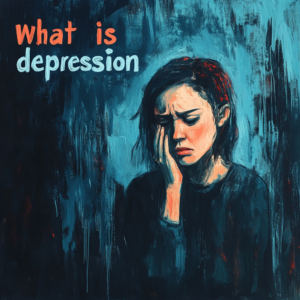 “Depressed” is a commonly applied term which can include a different picture of each person so described. As with cancer and the common cold, the term is so inclusive of diverse symptoms as to be almost non-descriptive.
“Depressed” is a commonly applied term which can include a different picture of each person so described. As with cancer and the common cold, the term is so inclusive of diverse symptoms as to be almost non-descriptive.
For example, irritability as a change in behavior can do damage to relationships but may not appear to have its roots in depression. In fact, it’s entirely possible that most irritability could have depression as its source.
As the blind man examines the elephantine aura of depression, he may encounter such things as fatigue, low energy, insomnia, too much sleep, loss of interest in food, or diminished interest in whatever had been important to us. In the extreme, depression can rob us of our good grooming and hygiene habits. The classical symptoms most of us recognize include helplessness, hopelessness, and worthlessness, diminishing into the warped perception that nothing matters. Hence, we have the seeds of suicide.
What is Depression?
Suicide, like murder, is typically considered illegal. Believable threats of suicide can initiate prompt involvement of law enforcement or mental health personnel. Talk of suicide often communicates the presence of a serious form of depression. Interestingly the risk of suicide increases according to some sources on the road to recovery. At depression’s depth, there may not be enough energy to commit the act. Ironically when the individual begins to come alive again, and before the return of good judgment, self-harm may result.
A hint to those who may hear threats of self harm: NEVER suggest that the person go ahead. Encouragement sometimes works. Almost all who survive a serious attempt will say they’re glad they didn’t succeed. It may be useful in some cases to acknowledge the listener’s inability to insure that the depressed person does not kill himself. It cannot hurt to add that you hope your friend chooses to live. The fact is, despite reports that the pain of depression can exceed physical ache, life is a choice.
Further good news includes the general belief that depression is the most responsive mental illness to treatment.
An ancient study reported in the Australian Journal of Medicine suggested that the three-pronged fork of antidepressants, psychotherapy, and aerobic activity help diminish depression in roughly equal proportions.
The Loughmiller-Institute staff is here to help. Reach out by calling 903-593-8395 to make an appointment.

